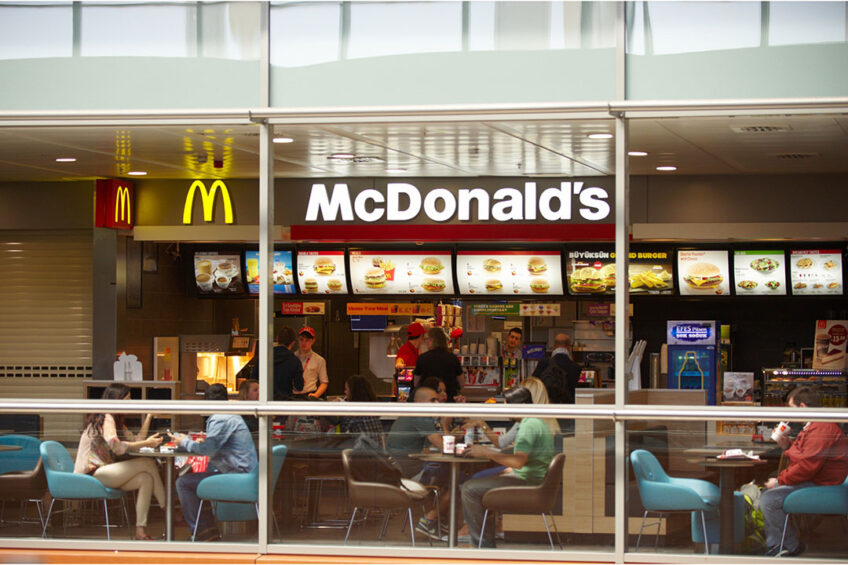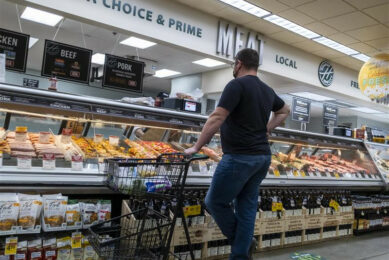McDonald’s sues major US firms over price fixing

After this year’s recent Thanksgiving celebration in the US, the pork industry woke up to a lawsuit from McDonald’s restaurants over long-term price fixing.
According to the lawsuit filing, pork prices were allegedly fixed over about 14 years, causing McDonald’s to pay artificially high prices for sausage, bacon and ham during that time.
The defendants named are described as the leading suppliers of pork, a small number of large firms that collectively make about $ 20 billion USD per year.
“Defendants and their co-conspirators collectively control over 80 percent of the wholesale pork market,” states the filing. “Defendants Agri Stats, Clemens Food Group, Hormel Foods, JBS USA, Seaboard Foods, Smithfield Foods, Triumph Foods and Tyson Foods entered into a conspiracy from around 2008 or early 2009 through the present.”
Not the first time
Earlier this year, JBS and Smithfield settled a similar lawsuit, admitting they worked with several other companies to artificially inflate the price of pork products. The settlement with JBS was $ 24.5 million USD, while the settlement with Smithfield was over $ 77 million USD.
The plaintiffs (restaurant owners) claimed JBS and Smithfield shared sensitive profit information through Agri Stats, an agriculture data and analysis company based in Indiana. Agri Stats then created customized reports that enabled JBS and Smithfield to compare their profits with that of competitors.
Last year, Jetro Holdings of New York sued Clemens Food Group, Hormel Foods, JBS USA, Seaboard Foods, Smithfield Foods, Triumph Foods and Tyson Foods for similar price fixing. Agri Stats was also involved.
In yet another pork price-fixing lawsuit filed in 2018, Smithfield agreed to pay $ 83 million and JBS paid $ 13 million to settle similar allegations.
Restrict output and limit production
McDonald’s similarly accuses its lawsuit defendants of having “implemented their conspiracy by agreeing with their competitors to restrict output and limit production with the express intended purpose and expected result of increasing and stabilizing pork prices.”
Furthermore, similarly to the other lawsuit, McDonald’s accuses JBS, Tyson and the others of “exchanging detailed, competition sensitive and closely guarded non-public information about prices, capacity, sales volume and demand through their co-conspirator, Agri Stats.”
“Beginning at least as early as 2009 and continuing through 2017 or later, Agri Stats began providing highly-sensitive ‘benchmarking’ reports to defendants…to compare their profits or performance against that of other companies.”
However, McDonald’s points out that Agri Stats’ reports are unlike those of other lawful industry reports. Agri Stats gathers detailed financial and production data from each of the Defendants, standardizes this information, and produces customized reports and graphs – not the type of information “that competitors would provide each other in a normal, competitive market. Instead, the provision of this detailed information acts as the modern equivalent of the proverbial smoke-filled room.”
Further, Agri Stats ensured that its detailed, sensitive business information was available only to the co-conspirators and not to any buyers in the market.
Jury trial
McDonald’s seeks a jury trial and mitigations for damages, including ‘treble’ damages, that allow the court to triple the amount of actual damages awarded to a plaintiff.
Retailer lawsuit
In January 2022, large US supermarket chains including Albertsons, Hy-Vee, Kroger, Save Mart Supermarkets and food distributor U.S. Foods took many of the same major US pork firms to court, also over price fixing of pork.
As reported in Ontario Farmer, the retailers claim the pork packers engaged in a coordinated effort to minimize production and boost prices by lowering the number of hog farms in operation by 70 per cent.
Nearly all of the defendants were also facing similar accusations at that point, with lawsuits filed by restaurant chains Buffalo Wild Wings, Sonic and Jimmy John’s in Florida in late 2021.











